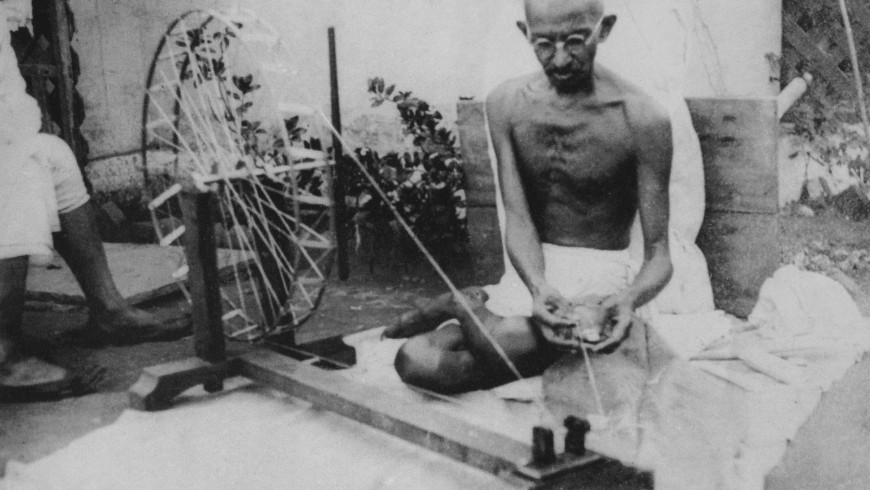«There is a sufficiency in the world for man’s need but not for man’s greed»
Lawyer, philosopher and politician known throughout the world for his nonviolent struggle and philosophy, Mahatma Gandhi also reflected on the relationship between man and the environment, thus becoming a precursor to a modern type of environmentalism.

In his words we can find contemporary concepts, such as ecology and destiny of the world, degrowth, moderate life, and small communities. Gandhi’s thought can thus be the starting point for creating what could be a concrete alternative to urgencies that unfortunately are getting stronger.
His nonviolent philosophy was applied by Gandhi in every field, including the relationship between man and nature. Indeed, the Indian philosopher claimed the equal right to life of all living things on the planet and praised a sober lifestyle, far from consumerism, and the beauty of small realities: he imagined the formation of small communities that had to integrate with the environment, something that anticipated the philosophy of local food and local communities.

In the writings of Gandhi never appears the word ecology, and the philosopher has never explicitly pursued an environmental movement but can be considered an early environmentalist, given his enormous awareness and desire for a more balanced relationship between man and nature.
It is fundamental to rediscover Gandhi’s thinking and his ecological inspiration that even his India, of which he is Father of Nation, has forgotten. Today India is, along with China, among the planet’s greatest polluters.
